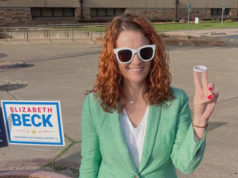Residency questions continue to swirl around Marshall Hobbs, one of three candidates vying for the District 8 Fort Worth City Council seat in a special election on May 12. The winner will replace the popular Kathleen Hicks, who is vacating her city council seat to run for Congress.
Hobbs no longer tolerates questions about his residency. A recent interview ended with Hobbs wagging his finger in a reporter’s face.
“You’re the reason the world hates the media,” Hobbs said several times.
In March, a state district judge overruled city secretary Mary Kayser’s determination that Hobbs hadn’t lived in District 8 long enough to seek election. The district encompasses some of the city’s oldest neighborhoods, including Polytechnic Heights, Meadowbrook, and parts of Riverside. While the district has traditionally been represented by an African-American on the council, the population makeup has changed so that it is now about 44 percent Hispanic and 34 percent African-American.
Former nonprofit director Kelly Allen Gray, pool construction contractor Ramon Romero, and Hobbs are running for the seat. Hicks will relinquish her position after her successor is chosen.
Hobbs, 47, a government professor at Eastfield College, pastor, bodybuilder, and volunteer, waited until the March 12 deadline to file. On the application, he said he’d lived in the district for six months. That meant he would have moved there in September. But candidates needed to have lived in the district for six months before the first day of filing on Feb. 13, which means he needed to have lived there by August.
Hobbs says he moved to a small rent house at 1820 Oakland Blvd. last year — when, exactly, is still open to debate. Some residents didn’t appreciate his moving in just to run for office. Gray and Romero are both lifelong residents of the district. Hobbs has roots in the district but has lived elsewhere for years.
[pullquote_right]His attitude took a nosedive when I asked about a water utility record that indicated his rented house was not connected for water service until Dec. 2. [/pullquote_right]Hobbs showed the judge evidence, including a lease agreement, to prove he had lived on Oakland Boulevard since July. The judge allowed him to file an amended petition, and he was back on the ballot.
Other evidence, however, indicates Hobbs may not have moved until much later. Fort Worth Weekly approached Hobbs after an April 25 forum with the Fort Worth/Tarrant County Minority Leaders & Citizens Council and asked for a sit-down interview. He refused, saying he would respond only with a statement because he is “not supporting the Star-Telegram.” The daily newspaper wrote about Hobbs’ early troubles in establishing his residency, and he didn’t consider the coverage fair. Later the Star-Telegram endorsed Romero.
Hobbs agreed to an interview after establishing that I wasn’t a Star-Telegram reporter. I suggested we go to an adjoining room that was private, but he insisted we talk in the crowded room with residents still hovering and chatting. Hobbs explained why he wouldn’t grant oral interviews with the daily paper.
“When the media begins to start slanting things in a negative way and trying to start sensationalism and starting issues that shouldn’t even be there, I’m not going to talk to you. I will give you my statement, so that way it won’t be misinterpreted,” he said.
I assured him I was interested in facts only and brought up the question of his residency.
“The fact is that I moved into that house on July 1,” he said. “The fact is that I lived in that house. … The fact is that I have been over a 30-year resident of Fort Worth, Texas. The fact is that I have always lived in the minority community. My family first came to Fort Worth in the early 1900s in Como. I have always served in this city.”
His attitude took a nosedive when I asked about a water utility record that indicated his rented house was not connected for water service until Dec. 2.
“Let me ask you a question: Have you ever leased anything before? Have you ever paid the water bill?” he said, leaning forward for effect.
“Yes,” I said.
“No, you haven’t,” he said. “Because at my business right now, I don’t pay the water bill.”
Was he saying the landlord paid his bill on Oakland Boulevard?
“You need to get the facts straight and know what it is,” he said. “I don’t know who had the water on. I know our street was being worked on, and I know that the meters were not in there for a while, so therefore you might need to check your records and get it straight.”
I was trying to get the facts straight, I said, and showed Hobbs the city records stating that the house was not connected for water service from April 29 to July 17, 2011 — indicating no one was paying a water bill during that period. A construction project that included new water meters was completed in October, while water service at the house was being provided to tenant Artemio Rangel.
Neighbors say the house has long been a rental property. County records list John Husby of Argyle as the owner. Husby did not respond to numerous calls for comment.
Water service was in Rangel’s name from July 18 to Oct. 18, and then service was cut off. The Weekly was unable to track down Rangel for comment.
Hobbs’ wife, Jyounkee “Nikee” Hobbs, called the city on Dec. 1 to request water service, which was provided on Dec. 2.
“If I had all my utilities on under my wife’s name, that’s what I had,” he said. “And the judge already made the decision, OK? The facts are already there. I don’t have to lie about anything.”
With that, he ended the conversation by insulting me and the news media in general.
The Weekly wasn’t able to ask him about other evidence that suggested he might not have been living in the house in July. Residents who live nearby say the house appeared vacant from October to December. Neighborhood volunteer Mike Phipps lives nearby, and in March he asked his postal carrier how long she’d been making mail deliveries to the Hobbses there.
“She said she’d been delivering mail there for about two and a half months,” Phipps said.
If true, that means mail deliveries to Hobbs would have begun in December or January. On Dec. 29, 2011, Nikee Hobbs wrote an e-mail to Greater Meadowbrook News publisher Wanda Conlin asking for information about the West Meadowbrook Neighborhood Association meetings.
The letter begins, “Hello, my husband and I are new to the neighborhood … .” The couple was welcomed into the association in January.
Romero, who also had participated in the candidate forum, was walking by as Hobbs was berating the media. Hobbs then accused me of being friendly with Romero. (I met the three candidates for the first time the week before at a forum and had done subsequent phone interviews with Romero and Gray. I waited to interview Hobbs in person so I could show him the water service records.)
Later, Romero said he wasn’t surprised by Hobbs’ behavior. Romero recalled the first time he met Hobbs at a forum. As the two started to shake hands, Romero gave his name. “He jerked his hand out of mine and said, ‘Quit stealing my signs,’ ” Romero said.
Romero, 38, grew up in Poly, raised a family there, and has created several businesses over the years in District 8. He has served on city panels such as zoning, planning, and air quality.
The other candidate, Gray, 43, until recently directed a nonprofit, the United Riverside Rebuilding Corporation, which provides affordable housing, using grants issued through the city. Her detractors note that the group owes the city $119,322 because one of its clients was later determined to be ineligible. Now the U.S. Department of Housing and Urban Development (HUD) wants the city to reimburse that amount to HUD, and the city in turn is seeking repayment from United Riverside.
“There was in 2009 a homeowner who was financially disqualified based on the city’s guidelines for homeownership,” Gray said. “We’re trying to work it out with the city and come to a resolution.”
Gray said she relinquished her nonprofit position to attend graduate school in business administration at Texas A&M University in Commerce, but if she wins the election she will put off school and devote her energy to the city.
The nonprofit’s problems don’t hurt Gray in the eyes of one of the district’s oldest and most ardent volunteers, Opal Lee. Only two African-Americans were serving among the eight council members before Hicks decided to step down. Lee said she is proud that a black woman was representing the district and wants to see Gray, who is also African-American, fill the spot.
“She’s worked in the neighborhood all her life,” she said. “We had a woman in there, let’s keep a woman in there. We got a foot in the door. Let’s leave it in there.”
How about an African-American man such as Hobbs?
“Don’t ask me about him,” she said.













